In Colorado, domestic violence is not a separate charge, but rather something that can enhance sentencing. This is known as a “domestic violence enhancer.” In other words, you are unable to be convicted of domestic violence without being convicted of some other crime.
In order for a crime to be considered domestic violence, it must be committed against someone you are or were previously in an intimate relationship with, such as a spouse or ex-spouse, couples or ex-couples, or even the parents of children regardless of if they cohabitated or were ever married.
In addition, the domestic violence “tag” doesn’t only apply to violent crimes like assault, but can be attached to other charges like harassment, injury to property, and even trespass. As long as the crime is done in an attempt to intimidate the other person, it can be charged as domestic violence as an enhancement to the original criminal charges. Domestic violence enhancements include increases in the penalties and sentencing of the original crime.
What Is A Domestic Violence Enhancer in Colorado?
To learn more about how a domestic violence enhancer works, watch the video below. Or, if you’d like to learn more about how domestic violence charges work in Colorado, read this more in-depth article on domestic violence charges.
For any charge designated as domestic violence in Colorado, the court must issue a protection order which will remain in effect to some degree for the duration of the case. That is to say, the protection order will be in effect until:
- A) dismissal
- B) acquittal at trial, or
- C) until any sentence resulting from a brokered resolution or a guilty verdict is completed.
The stated purpose of the protection order is to prevent further violence or abuse. Almost all protection orders contain a requirement that the accused maintain the peace with the alleged victim and not harass, stalk, intimidate, or otherwise cause the alleged victim fear. Many protection orders, however, contain requirements that the accused vacate a common dwelling, have no contact whatsoever with the alleged victim, even through third parties, and also have restrictions on the accused’s ability to consume alcohol or non-prescribed controlled substances (including marijuana).
These restrictions can make co-parenting a nightmare for any parent who is charged with a crime designated as domestic violence.” Violations of protection orders can be Class 1 or 2 misdemeanors and can include jail time. In municipal court, an allegation of violating a protection order increases the presumptive bond to $5,000. In either court, state or municipal, any sentence for violating a protection order must be served consecutively to any sentence served on the underlying offense.
In many jurisdictions, domestic violence cases are “expedited” or “fast-tracked.” Again, the stated purpose of the faster process is to provide the alleged victim the protection they need faster. The expedited process is a double-edged sword for the accused. On one hand, it means that criminal prosecution happens faster which can be problematic without proper and experienced representation. The added benefit, however, is that closure and absolution can come more quickly for the falsely accused.
Navigating the intricacies of domestic violence charges is not easy and the stakes are extremely high. It is critical that you have experienced and relentless representation.
Penalties for Domestic Violence Charges in Colorado
When charged with domestic violence, enhancements to sentencing apply in many different forms:
In addition to the protection order discussed above (which goes into effect immediately and long before guilt or innocence is determined), probation has its own enhancements. In many cases, those who plead guilty or are found guilty are required to partake in treatment programs for domestic violence offenders. Additionally, if convicted of domestic violence, you could even lose your ability to own or purchase firearms.
If an individual is a repeat offender of domestic violence, habitual offender status can be invoked. In cases of 3 or more separate domestic violence charges, habitual offender status carries a Class 5 felony sentence with penalties of a minimum of 2 years in jail and $1,000 in fines to a maximum of 3 years in prison and $100,000 in fines.
If you are charged with domestic violence, it is of the utmost importance to have a successful and skilled defense attorney on your side. If you are in need of an experienced and relentless domestic violence attorney, call Krizman Law today at 303-529-2677.
Need Legal Advice?
If you are in Colorado and have been charged with a crime, contact Krizman Law TODAY for a confidential review of your legal case.

Mr. Krizman is a criminal defense attorney in Denver, Colorado. He specializes in providing relentless defense for domestic violence, DUI, and drug crimes. He is a former public defender who has also worked for a district attorney and is licensed in the State of Colorado, and the United States Federal Court, District of Colorado. Mr. Krizman is a member of the Colorado Criminal Defense Bar, Colorado Bar Association, Denver Bar Association, and Arapahoe County Bar Association. A Colorado native, he has a law degree from the University of Denver Sturm College of Law, and a bachelor’s degree in Government and World Affairs from the University of Tampa. Call him today at 720.819.7317.
